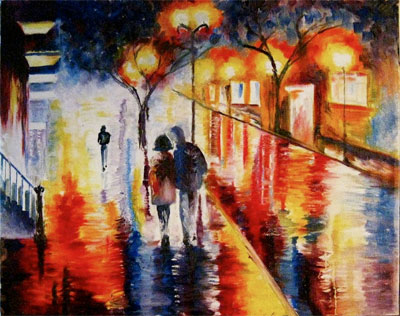All Nonfiction
- Bullying
- Books
- Academic
- Author Interviews
- Celebrity interviews
- College Articles
- College Essays
- Educator of the Year
- Heroes
- Interviews
- Memoir
- Personal Experience
- Sports
- Travel & Culture
All Opinions
- Bullying
- Current Events / Politics
- Discrimination
- Drugs / Alcohol / Smoking
- Entertainment / Celebrities
- Environment
- Love / Relationships
- Movies / Music / TV
- Pop Culture / Trends
- School / College
- Social Issues / Civics
- Spirituality / Religion
- Sports / Hobbies
All Hot Topics
- Bullying
- Community Service
- Environment
- Health
- Letters to the Editor
- Pride & Prejudice
- What Matters
- Back
Summer Guide
- Program Links
- Program Reviews
- Back
College Guide
- College Links
- College Reviews
- College Essays
- College Articles
- Back
Worth It
For the first 17 years, 1 month, and 14 days of my human existence, I led a largely pleasant and non-catastrophic life. That life, however, took a turn in the early hours of October 9, 2017, when, due to a local fire of then-unknown scale, my family and I were urgently evacuated from our home. Taking nothing but the barest essentials with us, we left our house, unknowingly for the last time, it being one of the thousands that were burned down in the wildfires that ravaged Northern California.
Two months later, on December 14, we learned that in the early hours of that morning, my cousin Gabriel, just a year older than myself and one of my closest friends, had committed suicide.
These two separate events, entirely different in scale and impact but both utterly devastating in their own right, forced me to reconsider the aspects of my life I had considered inherent or unchangeable: stability; the particular role of community; generosity; family; and myself as an individual, now navigating life with the added weights of hardship and heartbreak.
I have often wondered about the meaning of things, as I’m sure we all do. If one accepts—and I do—that each individual life, and frankly, the entire Earth, is but a single thread woven into a greater tapestry of the universe, galaxies, and space, then everything we do in our daily lives seems quite meaningless. Why worry over destroyed material goods, when even the most precious family artifact is only important to such an infinitesimal portion of the population? Why should members of the community go to such incredible extents to show their support for people going through unprecedented times? Why does a single death even matter in the grand scheme of things, and why should I pummel myself with questions of Why? How? and What could I have done?
Living with only an appreciation of that meaninglessness, however, results in a listless and depressed life, devoid of anything that really makes it worth living. So, I have adopted a new personal philosophy: positive nihilism. Or, as I like to think of it, a pragmatic approach to optimism.
I realize that there are a myriad of definitions of nihilism out there, from “total and absolute destructiveness, especially toward the world at large and including oneself” (dictionary.com) to “the belief that nothing in the world has a real existence” (Oxford Living Dictionaries). In fact, for full disclosure, no word that I know of exactly defines the idea I’m trying to express; nihilism simply comes closest. For this explanation, I define nihilism as the belief that nothing in the world as we know it is significant or relevant to existence as a whole. However, as we are all here, alive in this confusing and contradictory world, we might as well put ourselves to good use and try to better the lives of everyone around us. After all, the only thing each of us knows with absolute certainty is our own unique, individual experience of life. We have nothing else to go off of, so why not work to ensure health, happiness, and the best this human experience has to offer for all? Thus, positive nihilism.
With this idea, I can attempt to answer the questions I posed earlier. We grieve lost material goods because they grounded us to the lives we had built for ourselves. A community rises magnificently to meet a challenge because in doing so each individual gives something and receives something in return, and that exchange crosses boundaries and barriers, transcends selfishness and strife, and simply makes everyone happier. It does not matter whether or not a single death is significant to the world; that it is significant to me is enough, and if the added tally-mark to a terrible statistic results in lasting change, so much the better. The hardest questions, those most devastating and transforming, I cannot answer, nor do I think I ever will. Yet by accepting that there is not necessarily an answer to everything—or anything, for that matter—I can free myself to look for the good and the positive, simply for the sake of making the life that I and every citizen of the world have worth it all.

Similar Articles
JOIN THE DISCUSSION
This article has 0 comments.

This is by no means a completed work, but I would love to get any feedback you may have.